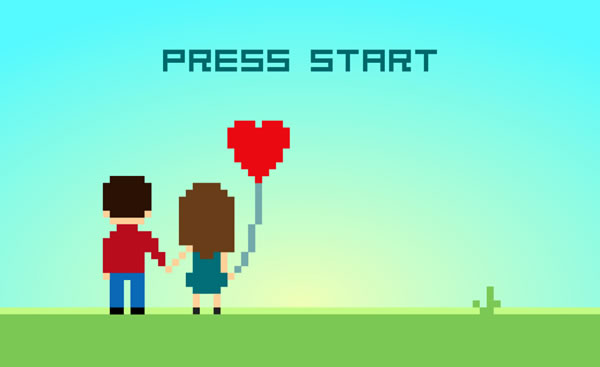
Every blogger has a pile of unfinished articles that have been sitting in the “Drafts” folder for weeks, months, and even years, myself included. Here are a few pieces that I’ve started on the topic of good life advice I’ve found over the past five years, but didn’t finish — until now:
- Jason Shen’s 17 essential best practices for making things happen
- Oliver Emberton’s Life is a game. This is your strategy guide.
- The importance of “Hell yeah!” or “Fuck yeah!”
- The importance of showing up, by Emily Heist Moss
Jason Shen’s 17 essential best practices for making things happen
Jason Shen’s aptly-named blog, The Art of Ass-Kicking, has an article that’s been on my “blog about this” list for far too long: 17 Essential Best Practices for Making Things Happen.
By “far too long”, I mean that the article dates back to December 2013, but his 17 best practices are timeless and worth following. The ones below are the most meaningful to me, but be sure to go to the article and read all of them:
- Keep the promises you make to yourself. I learned this one from Stephen Covey – we make little promises to ourselves all the time (“I’m going to stop working on weekends.” or “I’ll definitely get a workout in tonight.”) These promises are in fact more important to keep than the ones you make to your customers, your boss or your family. Because private victories come before public ones.
- If you’ve got a good idea, try to take some kind of action on it right away. Too often good ideas slip away, either due to momentum (it was exciting at the moment, but less so now) or just through forgetfulness. So when you have a good idea, send an email to a potential collaborator, sketch out some designs, or at the very least, make an Evernote note for the idea.
- Make every effort to understand someone else’s motivations for acting a certain way, especially if you disagree with it. Humans are notoriously bad at appreciating how another person thinks and feels. What’s the back story here? How might this person’s experience, position, skillset, social group, and value system cause them to act in this way. Many disagreements and corporate disfunction would be resolved if we all did this.
- If it is 80% done, and getting it to perfect is going to take a lot more effort, ship it, and fix it later. You’ll be surprised to find out how few things actually need to be “perfect”. This doesn’t give you an excuse to phone it in, but I’m a big believer in being prolific over being perfect.
- Find out what’s going to be on the test. Remember those annoying kids who used to ask if anything was going to be on the test? Well, they were on to something. Make sure you know what metrics, feelings or judgements will define your success, and concentrate your efforts there.
- There is something valuable to be learned from everything. Even with “worthless” tasks, be they boring, impossible, unrelated to your normal responsibilities or just plain tedious, you won’t waste your effort if you learn something from your actions. It might be a skill, an insight about people, or just a deeper understanding of how a system works. Writing and reflecting helps you appreciate and capture those learning.
- If you’re achieving 100% of your goals, you aren’t thinking big enough. Only by really pushing yourself will you discover what you’re truly made out of. Whether it is a workout, a deadline, a business deal or a romantic partner, you’ve got to go out on a limb and reach for more than you think you can get.
- When the right opportunity arises, seize it by the fucking throat. Once in awhile, a very special opportunity emerges – to travel somewhere, meet someone special, do something amazing. When you get that gut feeling that this is a big deal, do not hesitate to drop everything else you’re doing and pour all your energies into wringing that opportunity for everything it is worth.
Oliver Emberton’s Life is a game. This is your strategy guide.
If you like videogames and want to master the game of life, Oliver Emberton’s view of life through a gamer’s lens speaks your language. Here are the opening paragraphs…
You might not realise, but real life is a game of strategy. There are some fun mini-games – like dancing, driving, running, and sex – but the key to winning is simply managing your resources.
Most importantly, successful players put their time into the right things. Later in the game money comes into play, but your top priority should always be mastering where your time goes.
…and here are the closing ones:
All players die after about 29,000 days, or 80 years. If your stats and skills are good, you might last a little longer. There is no cheat code to extend this.
At the start of the game, you had no control over who you were or your environment. By the end of the game that becomes true again. Your past decisions drastically shape where you end up, and if you’re happy, healthy, fulfilled – or not – in your final days there’s far less you can do about it.
That’s why your strategy is important. Because by the time most of us have figured life out, we’ve used up too much of the best parts.
Now you’d best get playing.
Go read the article and catch the bits in between.
The importance of “Hell yeah!” or “Fuck yeah!”
Marrying Anitra in 2015. I said “I do”, but I meant “Fuck yeah!”.
These two articles espouse the same philosophy. Pick one — or hey, read both — based on your tastes and personal style:
- No “yes.” Either “HELL YEAH!” or “no.”: An article by entrepreneur Derek Sivers (founder of CD Baby, the web’s largest retailer of indie music) based around his simple rule: If you’re not saying “HELL YEAH!” about something, say “no”.
- Fuck Yes or No: Entertaining self-help guy Mark Manson takes Derek Sivers’ rule and applies it to relationships of all kinds:
- When you want to get involved with someone new, in whatever capacity, they must inspire you to say “Fuck Yes” in order for you to proceed with them, and
- when you want to get involved with someone new, in whatever capacity, they must respond with a “Fuck Yes” in order for you to proceed with them.
The importance of showing up, by Emily Heist Moss
“Friendships often start by accident, but they are maintained on purpose” goes the article’s subheading, and it’s right. Author Emily Heist Moss writes:
Maintaining friendships, much less forging new ones, is a question of choices. The choice to make the call, send the note, mark the calendar, reserve the time, follow-up, ask the questions, remember the answers. Over and over and over again. It is work, this friendship thing. For the ones down the mountain, I have to remind myself that it’s OK that sometimes I don’t want to log the hours. But for my top-of-the-mountain-people? Showing up when I don’t feel like it is when I put my friendship money where my mouth is.
So for the ride-or-dies, the 10x friends, show up even when you’re “busy,” because friendships often start by accident, but they are maintained on purpose. Show up even when you’re tired, because you know that your support—if only for a single drink, or an episode, or the first-half, or until you can’t keep your eyes open—is meaningful.
Show up even when it’s winter in Chicago.



